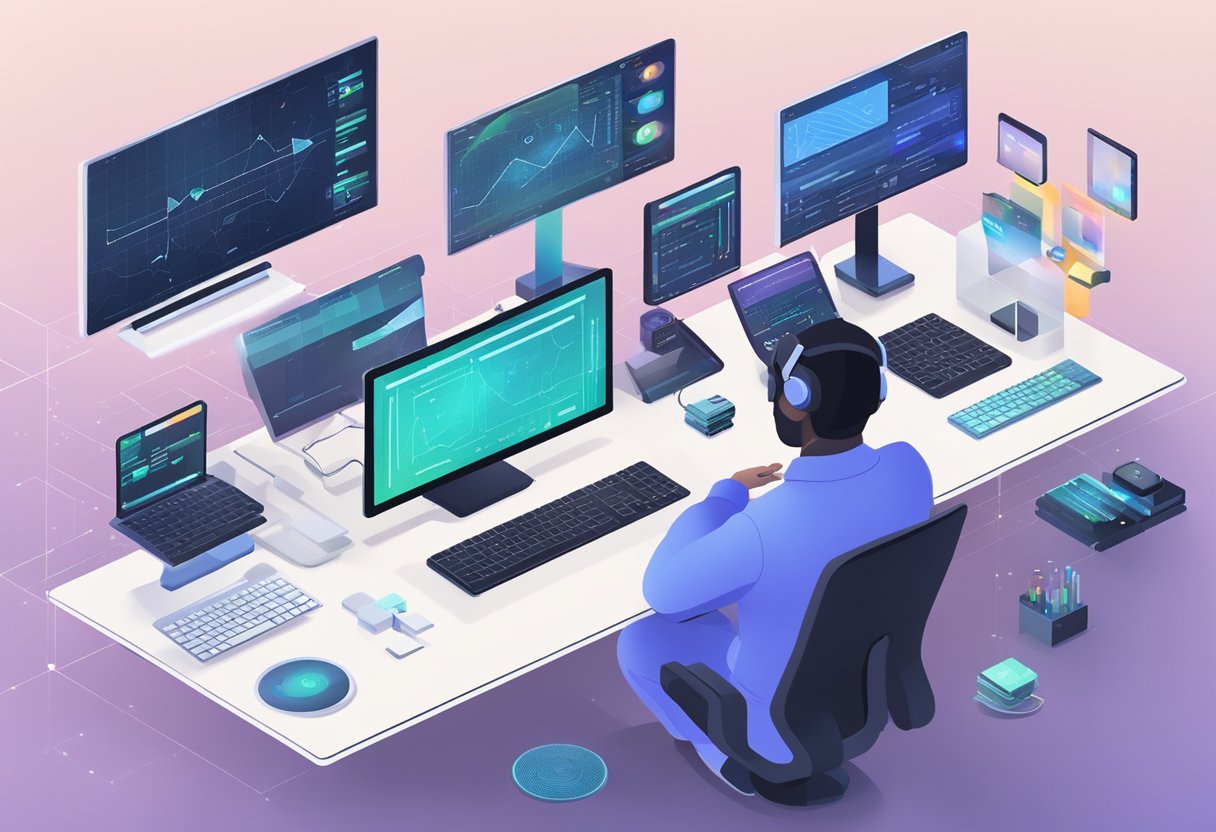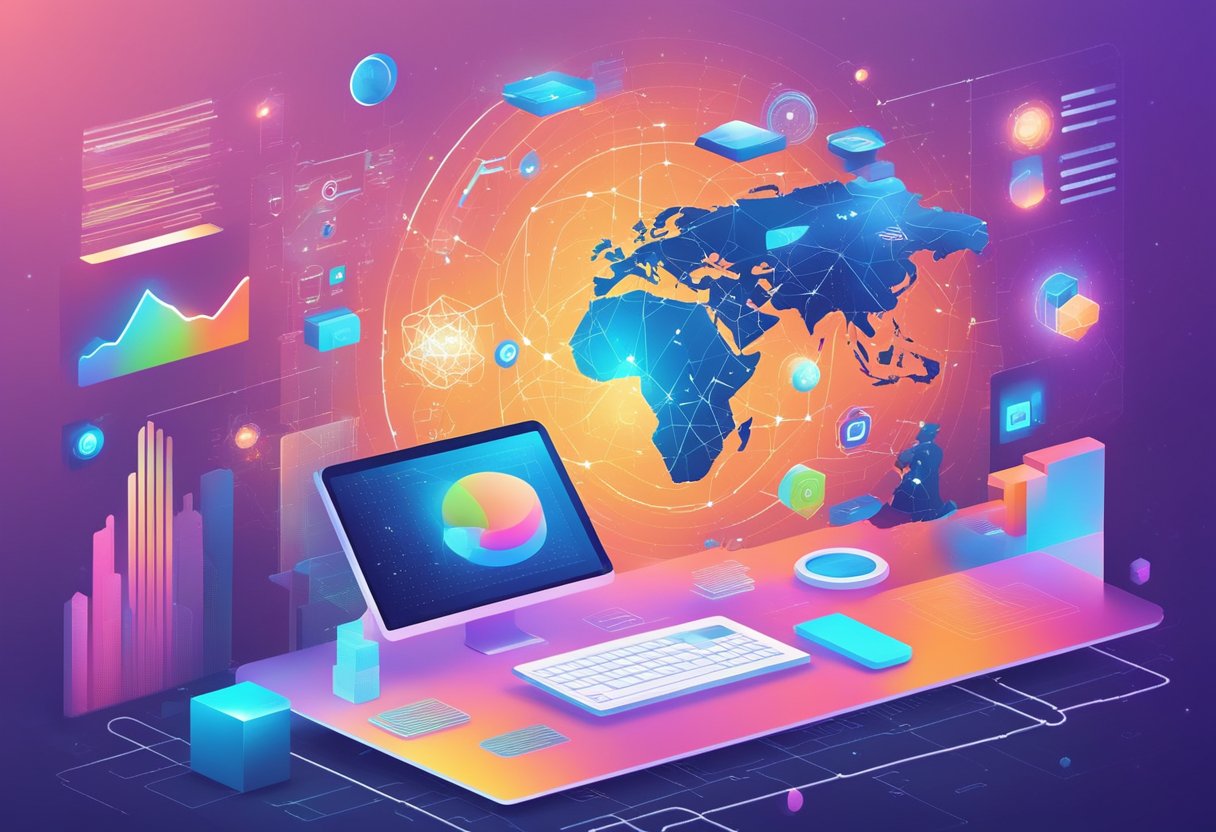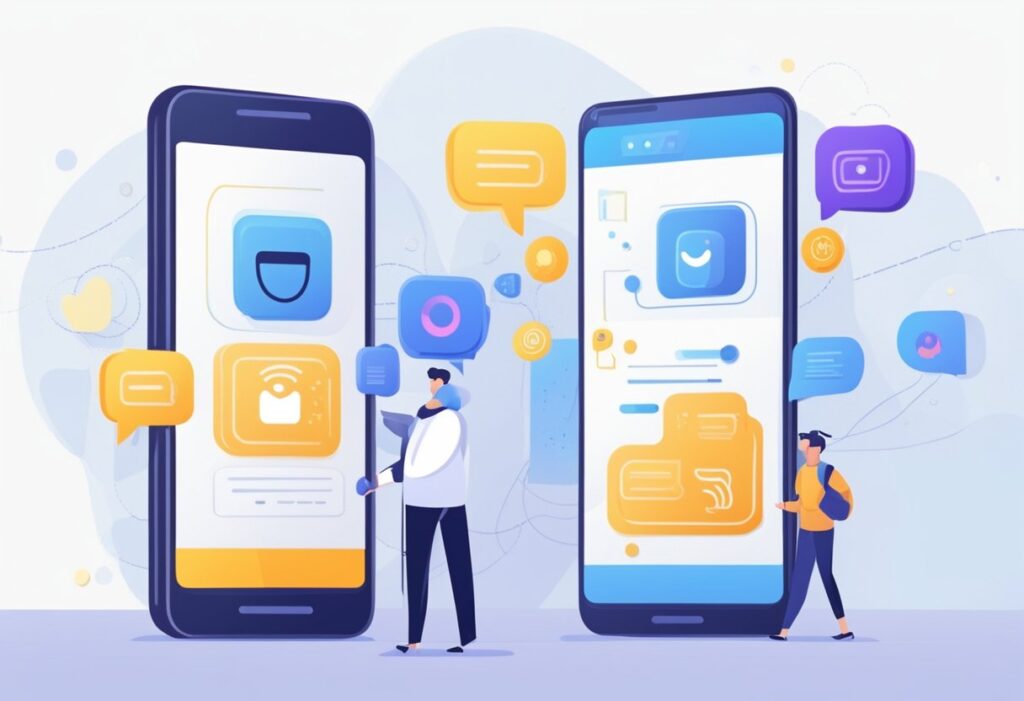AI-powered content creation tools have been evolving rapidly, providing marketers and content creators with a wide range of options to create high-quality content quickly and efficiently.
These tools use machine learning algorithms to analyze data, generate insights, and produce content that resonates with the audience.
With the increasing demand for personalized and engaging content, AI-powered tools have become an essential part of the content creation process.
The evolution of AI in content creation has made it possible to automate several tasks that were previously time-consuming and required a lot of effort.
These tools can help generate ideas, create outlines, and even write entire articles, blog posts, or social media updates.
Additionally, AI-powered content creation tools can also optimize content for SEO, analyze engagement metrics, and provide insights to improve content performance.
As a result, content creators can focus on other aspects of the content creation process, such as ideation, research, and strategy.
Key Takeaways
- AI-powered content creation tools have become an essential part of the content creation process, providing marketers and content creators with a wide range of options to create high-quality content quickly and efficiently.
- The evolution of AI in content creation has made it possible to automate several tasks that were previously time-consuming and required a lot of effort.
- AI-powered content creation tools can help generate ideas, create outlines, write entire articles, optimize content for SEO, analyze engagement metrics, and provide insights to improve content performance.
Evolution of AI in Content Creation

Historical Perspective
Artificial intelligence (AI) has come a long way since its inception.
The early days of AI were focused on developing algorithms that could perform simple tasks such as playing games like chess.
However, with the advent of machine learning, AI has been able to learn from data and become more sophisticated in its abilities.
This has led to the development of natural language processing (NLP) which has revolutionized content creation.
In the past, content creation was a time-consuming process that required a lot of human input.
However, with the emergence of AI-powered content creation tools, the process has become much more efficient.
These tools use NLP to analyze data and generate content that is both accurate and relevant.
Current AI Content Creation Landscape
Today, AI-powered content creation tools are widely used across industries.
These tools are capable of producing a wide range of content including articles, blog posts, social media posts, and more.
They are equipped with sophisticated algorithms that can analyze data and generate content that is engaging and informative.
One of the key benefits of AI-powered content creation tools is that they can produce content at scale.
This means that businesses can generate a large amount of content in a short amount of time.
Additionally, these tools can help businesses save money by reducing the need for human input.
Key AI Tools and Platforms

Artificial Intelligence (AI) has revolutionized the way content is created, optimized, and distributed.
With the help of AI-powered tools and platforms, content creators can now streamline their workflow, save time, and produce high-quality content that resonates with their target audience.
AI Writing Assistants
AI writing assistants like Grammarly, Jasper, and Lately use machine learning algorithms to analyze and improve written content.
These tools can help content creators catch spelling and grammar errors, suggest better word choices, and even offer insights into the readability and tone of their content.
Graphic Design and Video Tools
Graphic design and video tools like Canva and Synthesia use AI to simplify the process of creating engaging visuals and videos.
Canva offers a range of templates and design elements that can be customized to create social media posts, infographics, and even mini-websites.
Synthesia, on the other hand, uses AI to create realistic video content that can be customized to match a brand’s style and tone.
AI Content Optimization and SEO
AI content optimization and SEO tools like Copy.ai and Murf use machine learning algorithms to analyze and optimize written content for search engines.
These tools can help content creators identify keywords and phrases that are relevant to their target audience, and suggest ways to incorporate them into their content.
By using these tools, content creators can improve their search engine rankings and drive more traffic to their website.
Integrating AI Tools into Content Strategy

Artificial Intelligence (AI) is revolutionizing the way content is created, distributed, and promoted.
With the help of AI-powered content creation tools, marketers can streamline their content marketing strategy and create engaging content that resonates with their target audience.
In this section, we will explore how AI tools can be integrated into a content strategy to create high-quality content that drives traffic, leads, and conversions.
Understanding Your Target Audience
One of the most important aspects of content marketing strategy is understanding your target audience.
AI tools can help in this regard by providing valuable insights into the behavior, preferences, and interests of your target audience.
By analyzing data from social media, blog posts, videos, audio, images, email newsletters, and other sources, AI tools can help you identify the topics, formats, and channels that are most likely to resonate with your target audience.
Content Planning and Brainstorming
Once you have a clear understanding of your target audience, the next step is to plan and brainstorm content ideas that align with their interests and preferences.
AI tools can help in this regard by providing suggestions for topics, headlines, and formats based on the data analyzed.
For instance, ChatGPT can be used for brainstorming and first drafts, while Cobomba can be used for content intelligence and strategy.
These tools can help you create content that is relevant, engaging, and optimized for search engines.
Content Distribution and Promotion
Creating great content is only half the battle. The other half is promoting it to the right audience through the right channels.
AI tools can help in this regard by providing insights into the best channels and formats for content distribution and promotion.
For instance, Beautiful.ai can be used for creating visually appealing presentations, while Podcastle can be used for creating audio content that can be distributed through various channels.
By leveraging AI tools for content distribution and promotion, you can maximize the reach and impact of your content marketing strategy.
Best Practices for AI-Powered Content Creation

When using AI-powered content creation tools, there are certain best practices that content creators should follow to ensure that the content produced is of high quality, consistent, authentic, and engaging. Below are some of the best practices that content creators should consider when using AI-powered content creation tools.
Maintaining Authenticity and Creativity
One of the most important aspects of content creation is authenticity and creativity.
While AI-powered content creation tools can help generate content quickly and efficiently, it is important to maintain the authenticity and creativity of the content.
Content creators should use AI tools to assist them in generating ideas and structure, but should also use their own voice and creativity to make the content unique and original.
Ensuring Content Quality and Consistency
AI-powered content creation tools can help ensure that the content produced is of high quality and consistent.
Content creators should use AI tools that have built-in plagiarism checkers and readability analyzers to ensure that the content is accurate and easy to read.
Additionally, content creators should use AI tools that can optimize the content for search engines and social media platforms to increase engagement.
Avoiding Common Pitfalls
While AI-powered content creation tools can be extremely helpful, they can also lead to common pitfalls if not used correctly.
One common pitfall is relying too heavily on the AI tools and not using one’s own creativity and voice.
Another pitfall is using AI tools that produce low-quality or inaccurate content.
Content creators should do their research and use AI tools that have a proven track record of producing high-quality content.
Future Trends and Predictions

As AI-powered content creation tools continue to evolve, there are several trends and predictions that experts are anticipating for the future of this technology.
Advancements in AI and Machine Learning
One of the most significant trends in AI-powered content creation is the continued advancement of AI and machine learning algorithms.
Companies like OpenAI are leading the charge with their innovative language models like GPT-3 and chatbots.
These models are becoming increasingly sophisticated, allowing them to generate more complex and nuanced content.
The Role of AI in Personalized Content
Another trend in AI-powered content creation is the growing importance of personalization.
With the help of AI, companies can analyze vast amounts of data to understand their audience’s preferences and create personalized content that resonates with them.
Personalized content not only helps companies build stronger relationships with their customers, but it also helps them stand out in a crowded market.
Ethical Considerations and Impact on Employment
As AI-powered content creation continues to grow, there are also ethical considerations to keep in mind.
One concern is that AI-generated content could be used to spread misinformation or propaganda.
Another concern is the impact that AI-powered content creation could have on employment. While some jobs may become automated, there will also be new opportunities created for those with the skills to work with AI-powered tools.
Overall, the future of AI-powered content creation looks bright.
As the technology continues to evolve, it will become even more sophisticated, allowing companies to create more engaging and personalized content.
However, it’s important to keep ethical considerations in mind and ensure that AI is used responsibly to benefit both businesses and society as a whole.



